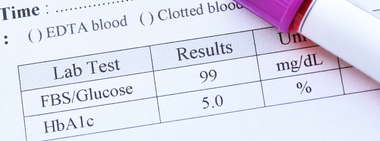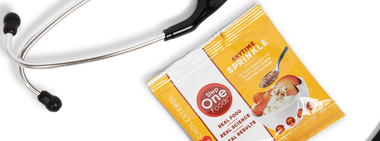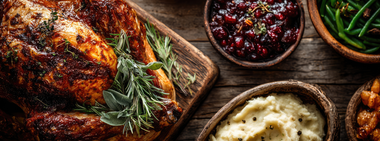Women’s Health Month: How to keep your heart healthy in your 20s and 30s

Heart disease is the leading cause of death for women in the U.S., claiming more lives than all types of cancer combined. To put that in perspective: the likelihood of dying from breast cancer is 1 in 30. The chance of dying from heart disease? 1 in 3.
Since heart disease is largely preventable, now is the time to take proactive steps—especially if you're in your 20s or 30s.
Why Heart Health Matters in Your 20s and 30s
Although heart disease tends to affect women later in life, the groundwork is often laid much earlier. Heart disease, which involves the buildup of plaque in the arteries, is the result of years of exposure to risk factors like poor diet, inactivity, high blood pressure, and smoking. That’s why the earlier you address your heart health, the better.
Avoid Nicotine: Smoking and Vaping Increase Heart Disease Risk
One of the most impactful things you can do for your heart is to avoid nicotine, including cigarettes and vaping devices. And if you already smoke or vape, quitting is one of the best decisions you can make for your cardiovascular health.
While vaping may seem safer, it’s not. Both smoking and vaping damage the lining of blood vessels, reduce blood vessel flexibility, and increase plaque buildup—raising your risk for heart attack, stroke, and peripheral vascular disease.
Recent studies show that vaping leads to elevated blood pressure, increased heart rate, and reduced exercise capacity—even in young people with less nicotine exposure than longtime smokers.
And while some e-liquid ingredients are considered “generally safe” when eaten, their inhalation safety remains unknown. Case in point: workers exposed to butter flavoring chemicals at a popcorn factory developed a serious lung disease later dubbed “popcorn lung.” What might repeated exposure to bubble gum–flavored vapor do to developing lungs? We simply don’t know.
Maintain a Healthy Weight While It’s Easier to Do So
Your 20s and 30s are the ideal time to achieve and maintain a healthy weight. This doesn’t mean becoming a marathon runner or conforming to unrealistic body ideals—just getting to a weight you feel good about and keeping it stable, including after any pregnancies.
The younger you are, the more responsive your metabolism and body are to diet and exercise changes. Developing healthy habits now—especially a regular exercise routine—will serve you for decades.
Many of my patients don’t gain significant weight until their 40s or 50s, but by then, losing it is much more difficult—especially after menopause. Being proactive today is like buying insurance for your future health.
Get Screened Early for Risk Factors
Don’t wait until symptoms appear to think about your heart. Use your 20s and 30s to gather baseline health data and monitor for risk factors.
At your annual physical, ask your doctor to check:
-
Cholesterol levels
-
Blood pressure
-
Lipoprotein(a) levels (especially if you have a family history of early heart disease)
Cholesterol should be checked every 4–6 years, and blood pressure at least every 2 years—more often if you have risk factors like family history of high blood pressure or high cholesterol.
Also important: pregnancy-related complications such as gestational diabetes, eclampsia, or pre-eclampsia are red flags for future cardiovascular issues. If you’ve experienced any of these, work with your doctor to manage your heart health more closely going forward.
Eat for Heart Health—Starting Now
One of the most powerful tools for preventing heart disease is your fork. Eating more like people in the Blue Zones—regions of the world where people live long, healthy lives—means prioritizing:
-
Colorful vegetables and fruits
-
Whole grains
-
Healthy fats (like nuts and olive oil)
-
Fiber-rich foods
Adding nutrient-dense, heart-healthy foods now sets the foundation for long-term health. Even if you're not focused on cholesterol-lowering, it's never too early to eat foods designed to support cardiovascular wellness.
Step One Foods is a great option, even for young adults. While you may not need to eat the products twice daily for cholesterol control, incorporating them into your routine periodically can help you develop better habits—and deliver nutrients that support lifelong heart health.
Protecting your heart doesn’t start in your 50s—it begins now. The habits you build in your 20s and 30s influence your cholesterol levels, blood pressure, and overall cardiovascular risk later in life.
About Step One Foods
Step One Foods offers convenient, scientifically-formulated foods clinically validated to rapidly reduce cholesterol and improve cardiometabolic health. Real food. Real results. Unapologetically delicious. Learn more at steponefoods.com.

Tested & Proven Results.
- Cardiologist formulated
- Supported by over 500 publications
- Clinically-proven, in a double-blind randomized trial with Mayo Clinic and The University of Manitoba
80% of participants lowered their cholesterol in just 30 days. With just two servings per day, Step One Foods offers a proven-effective way to naturally lower LDL (bad) cholesterol.
Get heart health tips and articles like this, delivered right to your email.
New articles every week.
You may also like...

Insulin Resistance, Prediabetes and Type 2 Diabetes. Part 1: Defining the Problem

The 95% Problem: Is Your Doctor Missing the Fastest Way to Lower Cholesterol?

You don’t need to avoid foods with cholesterol…except for these


